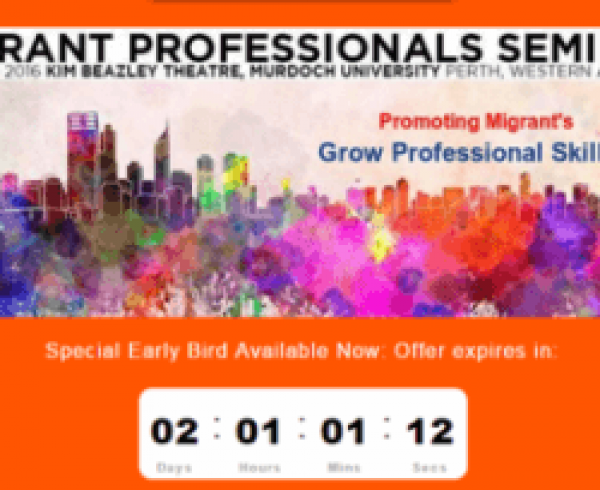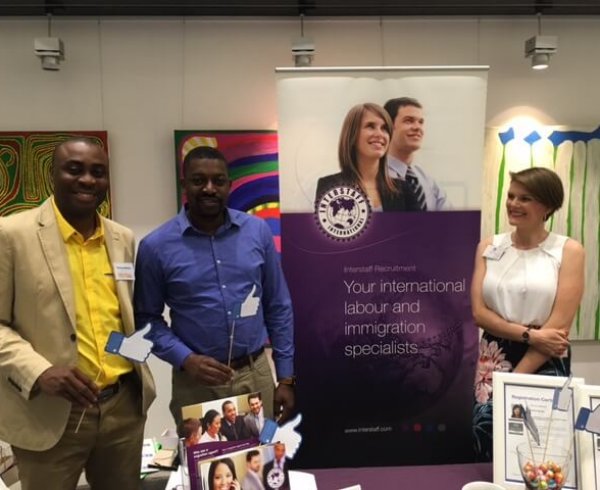Aged Care Labour Agreement Australia | Greater Flexibility to Sponsor Visa Holders
The Government has made an industry-specific Aged Care Labour Agreement immediately available to aged care providers across Australia.
Recognising that the aged care sector is an essential industry experiencing persistent skills shortages, it allows aged care providers to sponsor overseas workers with greater flexibility for these direct care occupations:
- Aged or Disabled Carer
- Nursing Support Worker
- Personal Care Assistant
Read on to explore:
- How aged care providers can benefit from using the new Labour Agreement and what the process involves
- Whether industry-specific Labour Agreements could be the future approach for other sectors facing post-pandemic skills shortages
- What Industry Labour Agreements are currently available?
Firstly, what is an Industry Labour Agreement?
Industry Labour Agreements are visa arrangements that allow employers to sponsor visa holders with access to concessions, providing greater flexibility for the criteria that usually apply to skilled visas – such as a person’s level of English, work experience, salary or age thresholds.
Concessions for Industry Labour Agreements are pre-negotiated with the Government and industry stakeholders and are generally fixed for use across the industry.
Once a business is approved for an Industry Labour Agreement, it is given a five-year period to access these concessions and sponsor overseas workers for specific occupations.
How can aged care providers benefit from the new Aged Care Labour Agreement?
The Aged Care Labour Agreement allows aged care providers to sponsor overseas workers with access to specific terms and concessions such as:
- Sponsoring direct care workers for up to four years on a Subclass 482 TSS Visa and for Permanent Residence (PR) through the Subclass 186 Visa for the below occupations:
- Aged or Disabled Carer
- Nursing Support Worker
- Personal Care Assistant
- Sponsoring under the 482 Visa will give workers a two-year pathway to PR (rather than three years) through the Subclass 186 Temporary Residence Transition (TRT) stream.
- Concessions for English levels
- To apply for the 482 Visa, workers with relevant community language skills employed by culturally and linguistically diverse aged care providers require an IELTS score of at least 4.5 or equivalent. Other workers require at least a 5.0 IELTS score or equivalent to apply.
- At least a 5.5 IELTS score or equivalent is required to apply for the 186 Visa.
- Concessions for Skills, Qualifications and Work Experience
- No post-qualification work experience is required to apply for the 482 Visa.
- Sponsoring under the 186 Visa (PR) will require workers to have at least two years of work experience in Australia in a relevant direct care occupation, but this work experience is not tied to a particular employer or visa subclass.
- Workers must hold at least a relevant Certificate III (or equivalent) or rely upon 12 months of relevant work experience.
- A positive Skills Assessment is required if qualifications were obtained overseas or if work experience is claimed in lieu of the formal qualifications.
- Concessions for Salary
- Workers must be paid at least $51,222 AUD or the Australian Market Salary Rate for the position – whichever is higher, instead of the new TSMIT of $70,000)
- Access to priority Government Visa and Nomination processing
How do I sponsor workers under the Aged Care Labour Agreement?
Aged care providers first need to establish an MoU (Memorandum of Understanding) with a relevant industry union, such as the Australian Nursing and Midwifery Federation, the Health Services Union or the United Workers Union before applying for the Aged Care Labour Agreement.
The MoU with a union replaces the need to undertake standard Labour Market Testing (LMT), a process of advertising a role locally before sponsoring a visa holder.
However, ‘expanded LMT’ is required, which means the business must offer local staff a maximum of 76 hours a fortnight before using overseas workers and review their local employees’ requests for increased hours on an ongoing basis.
Once an aged care provider has been approved for the Labour Agreement, it can proceed with the relevant Nomination and Visa applications to sponsor the visa holder(s).
Aged care providers will also need to comply with Visa Sponsorship obligations.
Could industry-specific agreements be the future approach for other sectors?
It seems the Government is exploring industry-specific migration programs for workers that fall into Tier 3 of its new Skilled Migration classifications.
At this stage it appears to be considering industry-specific programs for ‘essential industries experiencing persistent shortages’ only, but it will be interesting to see if industry-specific concessions will be enhanced/established for the Hospitality and Retail industries.
From 1 July 2023, the Hospitality and Retail industries may be limited in their use of the standard 482 TSS Visa program due to a typically higher proportion of workers earning less than the new $70,000 TSMIT / minimum salary for skilled visa holders in these sectors.
Media reports have speculated that the Aged Care Labour Agreement model, which requires an MoU with unions, will be extended to other sectors that have used Labour Agreements, including Hospitality and the Meat industry.
What Industry Labour Agreements are currently available?
Industry Labour Agreements currently available as at 13 June 2023 are:
- Aged Care Industry Labour Agreement
- Advertising Industry Labour Agreement
- Horticulture Industry Labour Agreement
- Dairy Industry Labour Agreement
- Fishing Industry Labour Agreement
- Meat Industry Labour Agreement
- Minister of Religion Industry Labour Agreement
- On-Hire Industry Labour Agreement
- Pork Industry Labour Agreement
- Restaurant (Premium Dining) Industry Labour Agreement
Each Industry Labour Agreement has its own fixed terms and concessions to sponsor visa holders with greater flexibility than through standard skilled visa programs.
Businesses can also access concessions through other types of Labour Agreements, such as Company-specific Labour Agreements, Designated Area Migration Agreements (DAMA’s) and Project Agreements.
Interstaff | Over 35 years of Experience since 1988 | Advice and Assistance
Although the Aged Care Labour Agreement will help aged care providers meet critical skills shortages, it has been criticised in the media for enabling people to qualify for PR by undertaking a six-week course and working for two years with an aged care provider. This contrasts with the pathway international students have after attending university, which is more expensive and longer.
The Government’s approach to prioritise visas for aged care is intended to help providers have enough staff to ensure it can meet the new ‘200 minutes of care per day’ requirement from October 2023.
According to the Sydney Morning Herald, Australia is set to experience a shortfall of around 25,000 aged care workers within the next two years, according to Health Department documents published under freedom of information laws.
If you are an aged care provider or a business that would like to discuss if a Labour Agreement is suitable for your needs, we encourage you to contact Interstaff’s Registered Migration Agents.
Source:
Interstaff’s Registered Migration Agents
Migration Institute of Australia
The Department of Home Affairs
The Department of Home Affairs
Media Release – Minister for Immigration, Citizenship and Multicultural Affairs






